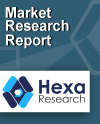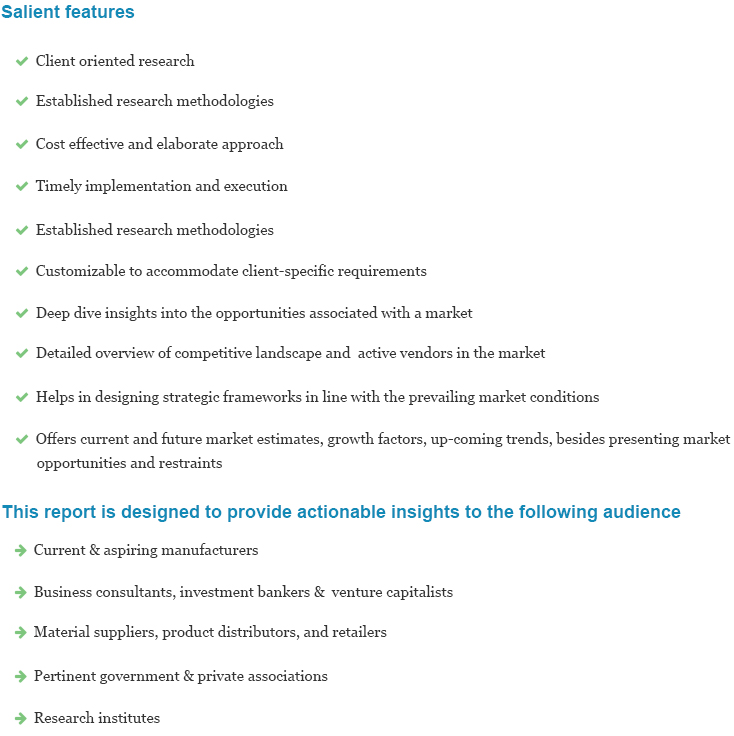
Dyslipidemia Therapeutics Market, Market Size, Application Analysis, Regional Outlook, Competitive Strategies, and Forecasts, 2016 To 2024
- Published: November, 2017
- Format: Electronic (PDF)
- Number of pages: 70
- Industry: Pharmaceuticals
Dyslipidemia is an interminable metabolic disorder, described by improper level of low thickness lipoprotein, high thickness lipoprotein, and triglycerides. The expanding demand and solutions of these medicines is offering lucrative growth opportunities for the dyslipidemia market. The current dyslipidemia business sector is overwhelmed by the statins, the progressive medications that diminish low-thickness lipoprotein cholesterol (LDL-C) and that have been demonstrated to lessen the danger of cardiovascular occasions, for example, heart assault and stroke. The launch of the proprotein convertase subtilisin/kexin type 9 (PCSK9) biologics and the cholesteryl ester transfer protein (CETP) inhibitors is anticipated to boost the industry growth. Nonetheless, loss of patent restrictiveness of particles, for example, crestor, zetia, and vytorin is required to hamper the development of the business sector amid the gauge time frame
The launch of PCSK9 inhibitors and human monoclobal antibody biologics to treat high LDL-C statins are expected to drive the industry demand.
PCSK9 Inhibitors is normally less utilized because of their potential for medication cooperation’s and poor patient resistance for side effects. The dispatch of the PCSK9s inhibitors might be approved by the U.S. food and Drug Administration (FDA) for use in the treatment of dyslipidemia. The PCSK9 inhibitors are sorts of prescriptions called monoclonal antibodies, which impersonate the body's own particular safe framework by joining to particular focuses on cells to create the desired result. While monoclonal antibodies are used to treat tumor, immune system illnesses and other conditions, they are widely used for the treatment of dyslipidemia.
High cholesterol, especially known as LDL-C, is the most widely recognized type of dyslipidemia. In information from the clinical system to date, Repatha has exhibited reliable, huge and solid diminishment in LDL-C levels with ideal consequences for other lipid parameters in around 6,000 patients with essential hyperlipidemia and blended dyslipidemia. Repatha, being produced by Amgen researchers, is intended to tie to PCSK9 and inhibit PCSK9 from official to LDL receptors on the liver surface. When PCSK9 are not there, there are more LDL receptors on the surface of the liver to expel LDL-C from the blood
The dyslipidemia drugs market can be segmented into bile acid resins, niacins, fibric acid derivatives, statins, and others (cholesterol absorption inhibitors and combination drugs).
The statins section involves consolidated market revenue of statin drugs, for example, atorvastatin, fluvastatin, rosuvastatin, pravastatin, simvastatin, pitavastatin, and lovastatin. The bile acids segment included resins, for example, Cholestyramine, Colestipol, Colesevelam, and Cholybar. The fibric corrosive, and omega-3 unsaturated fat subsidiaries portion involves nonexclusive medications, for example, Fenofibrate, Clofibrate, and Bezafibrate. Other marked omega-3 unsaturated fats incorporate Lovaza, Vascespa, and Omtryg. Niacins incorporates medications, for example, Niaspan, Slo-Niacin, and Niacor. The others divisions includes market examination of drug therapy treatments, for example, Advicor, Vytorin, and Caduet, and in addition cholesterol inhibitor drugs.
Expanding frequencies of dyslipidemia in developed countries such as North America and Europe and in developing countries such as Asia Pacific and Latin America regions combined with rising number of solution for medications, for example, statins and fibric corrosive subordinates drives the dyslipidemia drugs market development. In 2014, North America ruled the worldwide dyslipidemia drugs market. Europe represented the second biggest offer i.e. around 25% of the aggregate business sector in 2014 inferable from the ideal development conditions for pharmaceutical producers because of moderateness for marked details by purchasers. As indicated by the Centers for Disease Control and Prevention, cholesterol variations are quickly expanding in countries like North America and Europe. Positive government endorsement strategies combined with predictable rateof dyslipidemia in these regions drives the development of dyslipidemia medications market in North America.
Some of the prominent players in the global dyslipidemia drugs market are Pfizer Inc., Novartis AG,Pfizer Inc.,Merck & Co., Inc.,Pfizer Inc., Inc., Abbott Laboratories,Amgen, Teva Pharmaceutical Industries Ltd.,Pfizer Inc., Bristol Myers Squibb Company., GlaxoSmithKline Takeda Pharmaceutical Company Limitedand others.

Choose License Type
- World's largest premium report database
- Transparent pre & post sale customer engagement model
- Unparalleled flexibility in terms of rendering services
- Safe & secure web experience
- 24*5 Research support service
